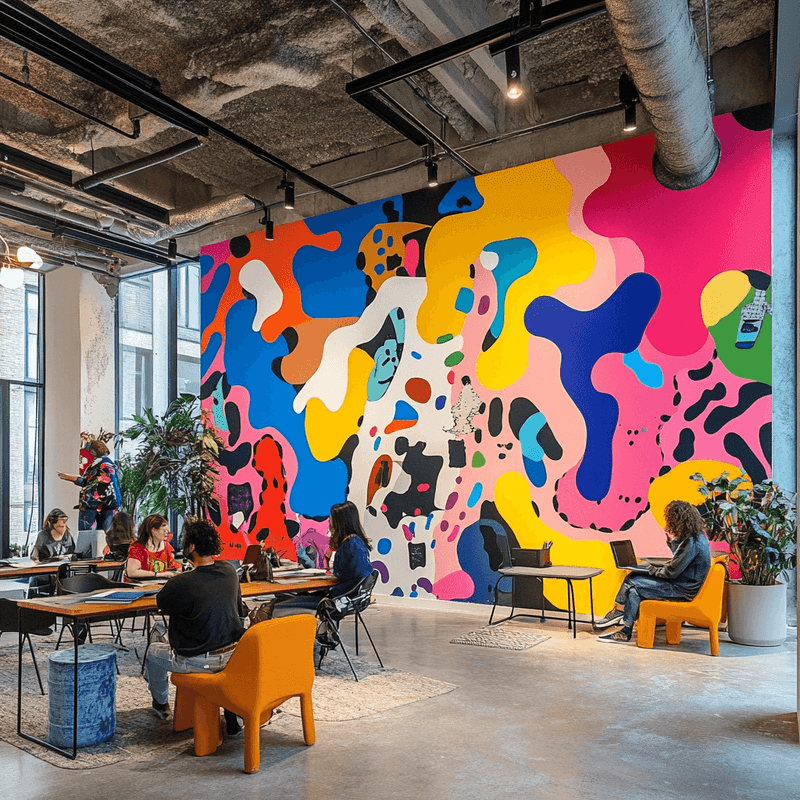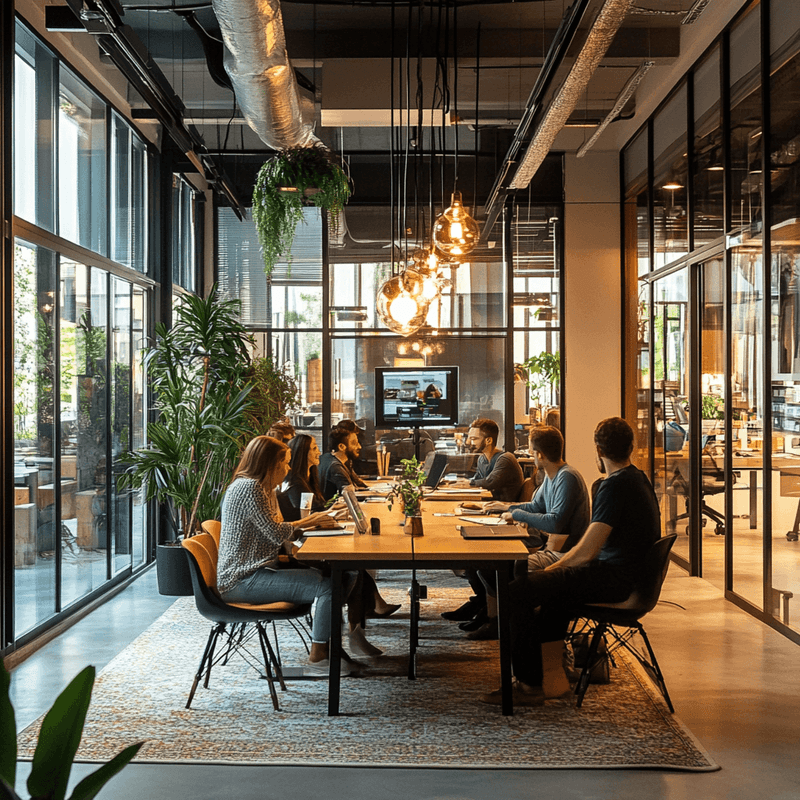
The security of data and people is a crucial issue for businesses, which today are increasingly subject to hacking, cyber-attacks and data leakage. This is also an issue for coworking spaces, which have become an extension of companies, welcoming employees from all walks of life into their hybrid workspaces. Issues such as personal data protection, network security and access control are key to ensuring a secure, legally compliant working environment. Focus on the main issues and on some of the initiatives developed by these flexible office spaces.
Cybersecurity: a costly affair for companies
Businesses are the first to be affected by cyber-attacks and cyber-harassment, costing France almost €2 billion by 2022. Asteres also reveals that the cost of losses to organizations amounts to 888 million euros, to which must be added 887 million in direct costs to respond to the consequences of these cyberattacks. That's a hefty price to pay!
Lea 's digitalization and massive use of teleworking have made companies more vulnerable. And the threat is very real for all companies. According to the Hiscox " Cyber Readiness 2023 " report, 53% of French companies have reported at least one attack in the past year.e, and that while 70% of companies affected remain those with over 1,000 employees, exposure of smaller structures is becoming more widespread, with a 50% increase in actual attacks in 3 years.
Companies are therefore called upon to strengthen their security systems and carry out regular audits, while also organizing preventive measures for their employees.
The new Network and Information Security Directive (NIS) already imposes stricter requirements, and its optimized versionn less than a year's time, NIS2 will require companies to ensure the complete security of all their internal systems with customers, partners and suppliers. For major corporations, this poses a major challenge: that of securing and constantly monitoring their digital infrastructure, now spread across several clouds. But how can these imperatives be met for nomadic workers?
How do coworking spaces guarantee the security of their spaces and networks?
Coworking spaces know all about these issues, as their business model depends on it. The question of security is built into the design of flexible office spaces right from the start. Despite the preconceived notion that shared office spaces might be less secure due to the shared use of facilities, these spaces implement strict measures to isolate client connections and ensure the confidentiality of each company's data. They use state-of-the-art technology, specialist partners, and carry out regular tests to ensure compliance and the effectiveness of security measures.
To the question "What can your company do to guarantee the security of its data? " James Mitchell, Director of Enterprise Solutions at IWG, has a rather seamless recommendation, that of using shared office spaces: "It may sound paradoxical, but if you want to guarantee the security of your company's data, shared office space is a suitable place."
At Wojo, too, the subject is being tackled head-on. Among the security measures put in place for coworkers: tracing of access to offices, isolation for exchanges on specific subjects, confidentiality filters on screens, glazing for certain spaces, systematic locking of sessions...
Having your own wifi network or private router, a VPN link between your different offices, hosting your own IT equipment in the computer bay... Everything is possible to adapt to the specific needs of each company. It's not for nothing that law firms, notaries' offices and even banks can have offices in coworking spaces.
Beyond action, there's prevention, and at W'In Coworking, there's even a coworking space security team. The team's recommendations include the creation of strong passwords, the use of anti-virus software, and regular back-ups on secure servers, external hard drives or automatic backup systems.
Personal security: the coworking spaces' response
Physical security also plays an essential role in shared office spaces.
To this end,IWG has introduced new electronic locks in all new centers. Instead of physically changing office locks when customers move, the new locks will allow customers to access their spaces using their smartphones. These electronic locks offer greater control, allowing customers to manage their space and track room usage via an app. Any attempt at unauthorized opening is recorded, reinforcing the security of the premises. Deployment of this technology has already taken place in 280 centers, covering nearly 15,000 telephone-controlled locks. IWG plans to equip up to five centers a week with the new technology. This initiative aims to offer customers a secure working environment.
Other spaces are opting for video surveillance of coworking spaces, such as Multiburo and WeWork. Or in some cases, hire external security services, particularly for larger coworking spaces. This can include the presence of security guards or outsourcing security to specialist companies.
In a nutshell
Cybersecurity, constantly adapting to new threats, is therefore a major imperative. Coworking spaces, aware of their crucial role in maintaining data confidentiality, are constantly vigilant. The deployment of cutting-edge technologies, partnerships with security experts and regular audits attest to their commitment to protecting the sensitive information of resident companies. At the same time, physical security is no exception. Initiatives such as electronic locks, video surveillance, or the hiring of security teams, help to create an environment where individuals feel not only productive but also protected.
Coworking spaces not only offer a flexible workplace, they also erect robust bulwarks against modern security challenges. The synergy between professional flexibility and security makes coworking spaces key players in the dynamic evolution of the professional world, offering a secure balance for companies and professionals who choose these innovative environments.
-
How do companies assert their identity in a shared space?

12/05/2025 How do companies assert their identity in a shared space?
Coworking spaces are places designed for the collective: so how can a company assert its own identity? While flexible space brands strive to be recognizable and identifiable among a thousand, they also enable their occupants to make their own workspaces their own.
-
Coworking: how to create, open and run a shared workplace?

03/05/2025 Coworking: how to create, open and run a shared workplace?
Coworking spaces are springing up all over France. How do they emerge today, and what room is left for new entrants to the flexible workspace market?
-
Coworking: how to prepare employees for flexible working?

03/04/2025 Coworking: how to prepare employees for flexible working?
As coworking spaces win over more and more employees, how can companies support this shift towards greater flexibility, without losing cohesion or performance? Here are a few tips!